Midway upon the journey of our life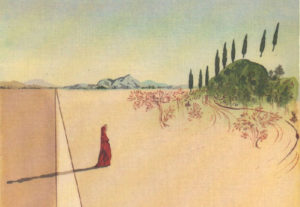
I found myself within a forest dark
For the straightforward pathway had been lost.
Ah me! All I could do was to begin at the beginning and ask what is true.
1. Wednesday, January 18: Studying Truth and Politics
Discussion Theme: What does it mean to study Truth and Politics?
At first glance, this question seems to be easy. For example, one could say Truth is about facts, not lies and distortions. Politics is about whether politicians tell the Truth or simply lie. While both answers are accurate, I believe they only scratch the surface of much broader and much more interesting topic. Facts are important–indeed, in short supply these days among public representatives–but what we mean by Truth is potentially more profound. In a courtroom, one swears to tell the “whole truth and nothing but the truth” (see HERE). What is the whole truth? Similarly, when we pose a question about politics, we are addressing an equally profound theme. If we are commited to telling “the whole truth,” what does it mean to say we should tell “nothing but the truth”?
Here are some interesting statistics. The tables present data about excess deaths and total mortality in the US over time. Excess deaths are the number of deaths that exceed the predictions of the preceding year. In general, the US averaged around 60,000 excess deaths before the beginning of the pandemic in 2020. Because I assume that the scientists who collect this data are experts in their field, I regard that the information as “true.”
Excess mortality from all causes (raw numbers), January 5, 2020 – December 18, 2022: HERE
Excess mortality from all causes (percentages), January 5, 2020 – December 18, 2022: HERE
Total number of excess deaths, January 5, 2020 – November 5, 2022: 1.20 million HERE
Total Coronovirus deaths, February 29, 2020 – December 30, 2022: 1.09 million HERE
What does it mean to discern the “whole truth and nothing but the truth” in assessing the significance of this data?
Before we seek to answer this question, I must ask for your indulgence. We will be reading the works of a lot of dead, White guys. My challenge is to persuade you that your engagement with these thinkers’ musty texts has direct relevance to the contemporary crisis over truth, politics, and democracy. Simply put, my aim is to create a common vocabulary for our conversations over the entire semester. Like the acquisition of all languages, it will take some time and patience before you see what I mean.
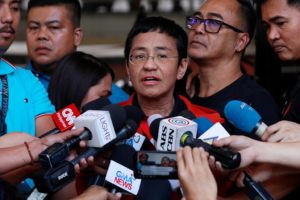 In tandem with our assessment of the thoughts of dead, White guys, please read Maria Ressa’s magnificent book, How to Stand Up to a Dictator. Ressa, who won the 2021 Nobel Peace Prize, covers every issue that we will consider in this course. Please try to finish this book in the next couple weeks. As a freedom-fighter with immense courage, she is in the position to keep philosophers and intellectuals honest.
In tandem with our assessment of the thoughts of dead, White guys, please read Maria Ressa’s magnificent book, How to Stand Up to a Dictator. Ressa, who won the 2021 Nobel Peace Prize, covers every issue that we will consider in this course. Please try to finish this book in the next couple weeks. As a freedom-fighter with immense courage, she is in the position to keep philosophers and intellectuals honest.
Good luck for us: Assuming Ressa manages to avoid a prison sentence in the Philippines, she will visit ND and give a lecture at 4:30 on Tuesday, March 21!
Breaking News! “Maria Ressa, Philippine Journalist and Nobel Laureate, Is Acquitted of Tax Evasion” HERE
2. Monday, January 23: Telling the Whole Truth?
Discussion theme: What does it mean to tell the Whole Truth in a democracy?
In this section, we will consider two types of cases in which Truthtelling is relevant to sustaining a healthy democracy. The first type is the deliberate distortion of the Truth. The second is–or may be, depending on your judgment–an example of not telling the whole Truth.
NOTE: The following readings and videos represent different challenges to our pursuit of the Truth in a democracy. Focus in particular on Tucker Carlson’s videos. Ask yourself:
1. What approach does he take in presenting his claims as facts?
2. What are his motivations?
3. Why do millions of people trust him.
On the subject of not telling the truth:
Deep fake video of Joe Biden admitting to voter fraud: WATCH Interestingly, this was shared by former White House Press Secretary, Kayleigh McEnany@kayleighmcenany (I don’t know if she can delete it).
“Surge of Virus Misinformation Stumps Facebook and Twitter READ
On the subject of not telling the whole truth, read Tucker Carlson’s co comments on on COVID: Vaccines, Masks, and Mandates:
May 6, 2021, “How many Americans have died after getting COVID vaccine?” PRINT and WATCH
September 2, 2021, “My body, my choice in the Age of Madness” PRINT AND WATCH
October 26, 2021, Talking about COVID is boring: READ THE ARTICLE AND WATCH AND TAKE NOTES ON THE ATTACHED VIDEO
3. Wednesday, January 25: Truth and Democratic Citizenship
Discussion themes: What does Truth have to do with good citizenship? What are the responsibilities of a good citizen in a democracy?
Sophia Rosenfeld, Democracy and Truth: A Short History, Chapter I; and pp. 42-49 (specifically about Kant)
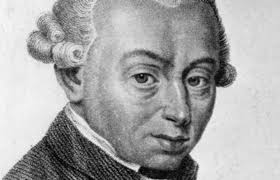
Rosenfeld provides valuable historical background on many of the themes, as well as many of the thinkers, that will occupy is for the next two weeks. She addresses most of these works directly.
Immanuel Kant, “What is Enlightenment?” PRINT AND READ
In Kant’s short essay, we find fruitful germs of the liberal democratic conception of citizenship. What does Kant mean by “enlightenment?” What does he mean by the obligation to act upon enlightened principles? How does he justify it?
What does it mean to be a good citizen in the US or any other liberal democracy? Do Americans live up to their responsibility to be good citizens? Does it matter if they do? Do you routinely live up to this challenge?
Truth and Politics today:
John Gramlich, “What makes a good citizen? Voting, paying taxes, following the law top list,” Pew Research Center, July 2, 2019 READ
4. Monday, January 30: Truth and Liberty
Discussion theme: Sorry to say it, but none of us is infallible. This fact has direct implications for our understanding of politics. What role should the limitations on our capacity to know the Truth play in the design of a well-functioning liberal democratic polity? Conversely, why are authoritarian regimes not as concerned about the issue of human fallibility?
As you read Mill, ask yourself: What are the strengths and weaknesses of his position? What might they teach us about the strengths and weaknesses of liberal democracy?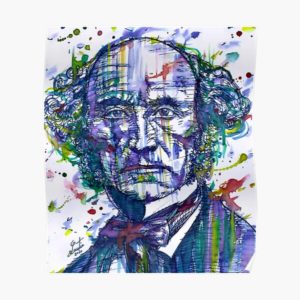
“On the Liberty of Thought and Discussion,” in John Stuart Mill, On Liberty (1869), ONLY chapter II: PRINT AND READ
Truth and Politics today: Is there a boundary between truth and entertainment?
In the United States: Fox.com, “Fox News defends First Amendment Freedoms” READ
And the news sources that Fox attacks, come to its defense! READ
Would Mill say they are making the right choice in defending Fox? Would Fox defend them in similar circumstances?
The case for tolerating diverse views and the follies of “safe spaces” and “non-platforming, David French, “The Moral Center is Fighting Back”: HERE
In Britain, what should be done about the spreading of false information?
“BBC issues internal guidance on how to report climate-change,” carbonbrief.org READ Is the BBC the anti-Mill?
5. Wednesday, February 1: NO CLASS
Regrettably, I will not be able to hold office hours this week. I look forward to seeing on the coming Monday for Carlos Lozada’s visit!
6. Monday, February 6:
We will have a class visit with one of Notre Dame’s most distinguished graduates, Carlos Lozada (’93)
Carlos has recently joined the New York Times as an opinion columnist. He was previously the non-fiction book critic at the Washington Post.
Carlos was awarded the Pulitzer Prize for Criticism in 2019 and was a also finalist for the award in 2018. He has also received the received the 2015 National Book Critics Circle Citation for Excellence in Reviewing.
Discussion Themes:
-
-
- What is the function of a free press in a free society?
- How do you recognize “truthful” journalism when you see it? What are the signs of “untruthful” journalism? What should news media like the New York Times and the Wall Street Journal do to demonstrate that they are committed to telling “the truth, the whole truth, and nothing but the truth”?
- What is the difference between journalists who report the news and journalists who contribute to opinion pages (like Carlos Lozada)? Are the first simply purveyors of facts and the latter purveyors of opinions? Do all opinions have the same quality? Or are there essential differences? Indeed, how might examples of great opinion-writing be just as truthful as facts? Keep in mind my comprehensive understanding of truth-telling.
- Is great journalism less and less possible in our overcommercialized and politically polarized age? Or is it just overwhelmed by the contemporary torrent of misinformation, lies, and shameless deception?
-
Requirements:
Carlos Lozada, “How to Strangle Democracy While Pretending to Engage in It” PRINT AND READ
Carlos Lozada, “Authoritarianism is Surging” PRINT AND READ
Carlos Lozada, “True Enough,” Chapter 5, What were we thinking? PRINT AND READ
Carlos Lozada, In Plain View,” Chapter 10, What were we thinking? PRINT AND READ
Carlos Lozada, “The is What Happened When the Authorities Put Trump under a Microscope,” New York Times, February 10, 2023 PRINT AND READ
Carlos Lozada, “Ron DeSantis Has a Secret Theory of Trump” READ
7. February 8: Real-World Politics (supposedly)
Discussion theme: In dictatorships, politicians lie by habit, deception, and decree. Are we naïve to expect that politicians will or even should behave differently in liberal democratic polities? Also, can one legitimately defend lying?
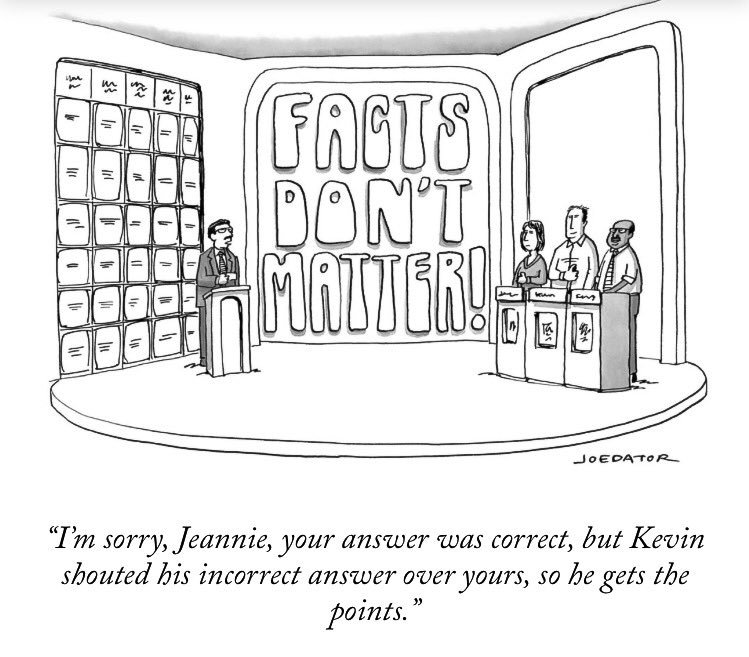
In this section, I would like to cover two themes. The first is the argument that all forms of political organization are about nothing more than domination. This argument is implicit in Machiavelli’s The Prince as well as in the works of political scientists who call themselves “realists.” The second is the explicit endorsement of political lying. How are these claims different?
Let us begin with Machiavelli’s arguments in The Prince PRINT AND READ
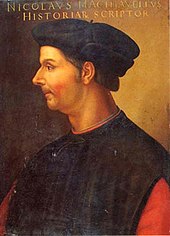 One side of Machiavelli’s thinking is well known. He argues that Princes should do some pretty nasty things if they want to stay in power. This includes a lot of lying.
One side of Machiavelli’s thinking is well known. He argues that Princes should do some pretty nasty things if they want to stay in power. This includes a lot of lying.
Nonetheless, does Machiavelli believe that Princes should put the maintenance of power ahead of the pursuit of a good society? And if they are interested in cultivating a good society, how should this pursuit affect their behavior?
To gain a different, but not necessarily incompatible perspective on Machiavelli’s claims, read these excerpts from his Discourses PRINT AND READ
Truth and Politics today:
POLITIFACT.COM: “Joe Biden is wrong that he was against the Afghanistan war from the start” PRINT AND READ
8. Monday, February 13: The First Great Debate!
Democrats lie!
Proposition: “President Obama had no choice. He had to lie to make the Affordable Care Act possible! As politicians in liberal democracies have recognized for the past two centuries, lying and great leadership go hand in hand.”
Background Readings
We will engage in a vigorous debate based upon these opposing arguments:
David Leonhardt, “The Original Lie about Obamacare” PRINT AND READ TO PREPARE FOR THE DEBATE
“Obama’s pledge that ‘no one will take away’ your health plan,” Washington Post, October 30, 2013 PRINT AND READ TO PREPARE FOR THE DEBATE (awarded four Pinnochios by the Post)
Debate Structure: TBA
9. Wednesday, February 15: Great Writing and the Art of Persuasion
In preparation for your essay assignments in this course, let’s talk about what constitutes great writing.
I love George Orwell. Thus, I assign his writings, especially the two below, again and again. More than seven decades after his death, Orwell continues to provide us with fresh insight into the study politics. As you will see, in “Politics and the English Language,” his argument is all about the ways in which words can be used and abused to justify dictatorship. The use and abuse of words plays a major role in American politics today.

Orwell also teaches us a lot about great writing. His books and essays are deceptively easy to read, but most people cannot write with the fluid, easily understandable, and totally persuasive style that he exemplifies. I wish I could! Still, I want you to try to emulate his example.
Readings from George Orwell:
“Politics and the English Language” PRINT AND READ Look at what Orwell has to say about both 1) the political uses and abuses of words; and 2) good writing.
“Why I write” PRINT AND READ This article is about both the personal motivations behind writing and the psychological factors that make great writing difficult.
George Orwell: Facsimile (handout)
Mystery Facsimile (handout)
Also consider the power of the words used by the Trump and Biden administrations. See Michael Shear, “The Words that are In and Out with the Biden Administration”: PRINT AND READ
What would Orwell say about Biden’s language policies?
10. Monday, February 20: Listen to the Experts: Political Experts Rule!
Discussion theme: What role should expertise pla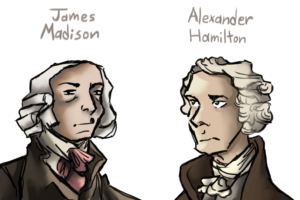 y in liberal democratic politics?
y in liberal democratic politics?
The goal of this session is to examine the idea of expertise in politics and the way that political elites use it to justify their rule over ordinary citizens.
Sophia Rosenfeld, Democracy and Truth: A Short History, Chapter II, pp. 42-72.
James Madison and/or Alexander Hamilton, Federalist Papers, nos. 10, 49, 57, 58 PRINT AND READ
Truth and politics today
Jeffrey Rosen, “America is Living James Madison’s Nightmare” PRINT AND READ
Paragraph assignment for Wednesday’s class:
“Hilary Clinton should have read Dewey’s “Search for the Great Community” in college, rather than the Federalist Papers. If she had done so, she—and not DT—would have won the 2016 election!”
Is this claim true or false? Write an introductory paragraph and the first sentence of the second paragraph in a manner so fluid that it will lay the groundwork for a 20-page essay.
11. Wednesday, February 22: Bringing the People in!
John Dewey’s idea of truth and democracy represents a notable contrast with the preceding readings. Readers frequently find Dewey’s argument challenging. Thus, be prepared to read it several times.
Sophia Rosenfeld, Democracy and Truth A Short History, pp. 72-91
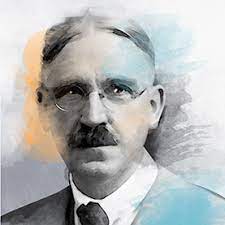 John Dewey, The Public and its Problems, Chapter V, “The Search for the Great Community” LOCATE HERE AND PRINT
John Dewey, The Public and its Problems, Chapter V, “The Search for the Great Community” LOCATE HERE AND PRINT
(Hesburgh also has two on-line versions. You can use one of them to download a PDF. If you want to do this, print the chapter the first time you see it; the publishers may not let you “take it out” again)
Truth and politics today:
What do we mean by “community”? Are all communities good? When do they work well?
Jon MooalJo, “Is Life Better when we’re Together?” New York Times, December 26, 2021` READ AND TAKE NOTES
How did community make a difference in the fight against polio? Susan Brink, “Can’t Help Falling In Love With A Vaccine: How Polio Campaign Beat Vaccine Hesitancy” READ AND TAKE NOTES
Your First Essay Assignment is here.You have until Monday, March 6 to write it.
12. Monday, February 27: Looking Back at the What the Big Thinkers have to say. Does Maria Ressa have anything to say to them?
At this point in our course, we have covered a lot of material, a lot of thinkers, and a lot of themes. Today, we will take the time to look back at this material and see how it all fits together.
Our goal is to engage in a comparative discussion of all of the thinkers we have encountered: Machiavelli, Kant, Mill, Orwell, Madison and Hamilton, and Dewey. We can do this by comparing and contrasting their views on the following subjects:
- The nature of truth
- How one pursues the truth
- Human nature and truth
- The good society
- The relationship between the truthtelling and the good society.
Once we have identified each of these thinkers’ views on these questions, we can then combine them to ask what kind of political system their works would imply. The last item is a good example how doing this.
The goal of this class is to work toward internalizing all of these different views on truth, politics and democracy. As I have repeatedly emphasized, each of these thinkers represents a particular approach to our course topic. Thus, these thinkers’ perspectives are as alive today as they were when they initially set pen to paper!
